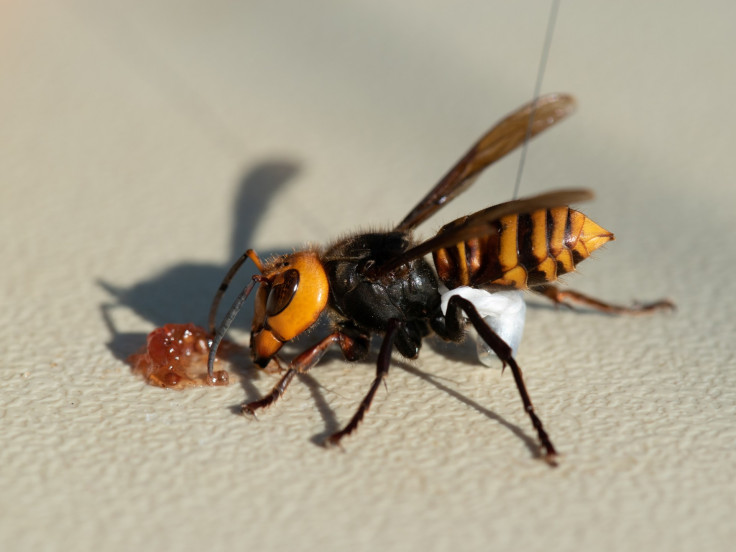Asian hornets have been sighted in the UK, endangering native bees
These invasive insects are already wreaking havoc in Europe and predominately in the UK, as nests have been found in East Sussex, Kent, Devon and Dorset.

It has long been known that bees are in danger of extinction due to a number of factors ranging from large-scale agricultural practices and habitat loss to climate change and toxic pesticides.
Over the past century, the bee population has plummeted significantly, with some even being labelled as an endangered species, leaving their food systems – along with our food chains – at risk of total collapse.
But now, aside from detrimental human activities and the looming threat of global warming, bees are now facing a new, and vicious danger – the invasive Asian hornet.
Asian hornets, also known as yellow-legged hornets or Asian predatory wasps, are a species of hornets indigenous to Southeast Asia, although they can be transported around the world in cargo.
These insects feed on the native bees and wasps, thus damaging biodiversity, and are believed to play a role in up to 60 per cent of both animal and plant extinctions.
The Asian hornet is a prime example of an "alien species" at risk of gaining a permanent foothold in the UK.
Aliens species is a term given to living beings that are transported around the world by humans into places that wouldn't be their natural habitat. These species are widely considered to be one of the five major drivers of biodiversity loss, whilst also being a threat to nature and human health.
This news comes as leading scientists have recently published a global report on the threats posed by invasive species, including the Asian hornet.
Based on the results, invasive alien species are spreading across the world at "unprecedented rates", threatening native plants, bees and animals with extinction, whilst also having the potential to damage human health and livelihoods.
Alarmingly, there has been a sharp rise in sightings of this species in the UK, with the previous years only having two sightings each, whereas there have already been 22 confirmed in 2023.
In total, there have been 45 sightings of hornets since 2016.
The hornets are wreaking havoc in mainland Europe and predominantly in the UK, with nests already found in East Sussex, Kent, Devon and Dorset.
Dave Goulson, bumblebee conservation expert and professor of biology at the University of Sussex, openly expressed his fears that the hornets had become established in Kent.
He stated: "I think it is inevitable that they will eventually establish in the UK, and once here it is hard to see how they could be eliminated."
"The arrival of Asian hornets would provide a significant new threat to insect populations that are already much reduced due to the many other pressures they face, such as habitat loss, pesticide use and so on," Goulson continued.
Realistically, this would be terrible news for native bees, which the hornets gruesomely dismember and then feast upon.
Mimicking the behaviour of a common predator, the hornets typically sit outside of honeybee hives and capture the bees as they enter or exit. They will then proceed to cruelly chop up the smaller insects and feed their thoraxes to their young.
Concerned beekeepers are now travelling from England to Jersey in the hopes of gaining a better understanding of controlling Asian hornet numbers and combating the invasive species.
One particular beekeeper, Luke Whyatt, who came to the island from The London Beekeepers' Association, stated that it was important that different beekeepers work to "train our own troops".
People are also being urged to report any sightings of Asian hornet nests to the authorities.
© Copyright IBTimes 2025. All rights reserved.






















